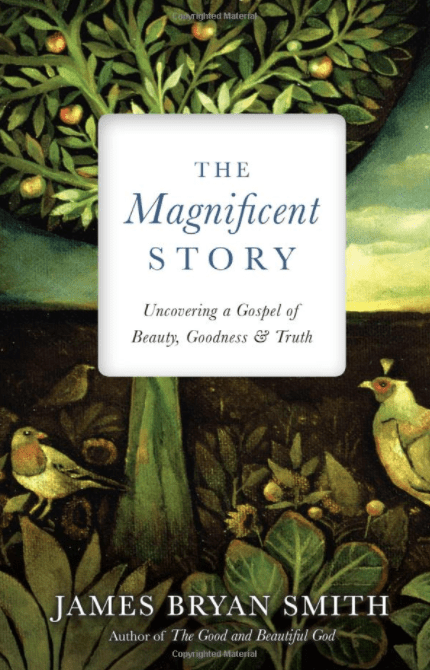 Two features of prayer rise to the surface in any discussion about prayer: that people of all parts of the world and of all times pray, and that prayer practices shift from one group to another. Those practices reveal, often enough, what each thinks prayer is. But notice how people pray in different ways, from Tim Keller, Prayer: Experiencing Awe and Intimacy with God (p. 37):
Two features of prayer rise to the surface in any discussion about prayer: that people of all parts of the world and of all times pray, and that prayer practices shift from one group to another. Those practices reveal, often enough, what each thinks prayer is. But notice how people pray in different ways, from Tim Keller, Prayer: Experiencing Awe and Intimacy with God (p. 37):
Prayer presents a dizzying variety to the eye of the observer. Just look at the religious trances of Native American shamanists; the chanting in Benedictine monasteries; devotees doing yoga in Manhattan offices; the hour-long pastoral prayers of the seventeenth-century Puritan ministers; speaking in tongues in Pentecostal churches; Muslims engaging in sujud, with forehead, hands, and knees on the ground toward Mecca; Hasidim swaying and bowing in prayer; and the Anglican priest reading from The Book of Common Prayer.
He asks how praying in these traditions are the same and different.
1. Some modern theorists of prayer examine it subjectively — in terms of human needs coming to expression: to control the universe in a child-like manner (Freud), in terms of seeking peace in inner consciousness or realizing our oneness with the interconnected cosmos (Jung). Thus, prayer turned into pure awareness. Here “progress” is made when a person moves from petitions and intercession into self-awareness and inner consciousness.
2. Friedrich Heiler proposed that prayer had a mystical and a prophetic face. The mystical, however, was devalued: it plays down the difference between the human and God, and he saw a higher kind of prayer in the Bible’s very human kinds of prayer (in the Psalms), which he calls the prophetic. In the first God is immanent; in the second transcendent. The former is meritorious and the latter grace. The aim of the first absorption the second nearness.
Which is right? Keller, in his typical via media approach, opts for the “mystical prophetic” (40-43). But he sides with Heiler’s emphasis on God as person and God as transcendent. He sees a good example in Jonathan Edwards (from p. 42):
I felt an ardency of soul to be, what I know not otherwise how to express, emptied and annihilated; to lie in the dust, and to be full of Christ alone; to love him with a holy and pure love; to trust in him; to live upon him; to serve and follow him; and to be perfectly sanctified and made pure, with a divine and heavenly purity.
So Keller puts it like this:
Why, then, can Edwards talk about prayer to a personal, transcendent God with such mystical overtones? Because, while the biblical God is not Same-as-Me, he is also not utterly, inaccessibly Far-from-Me (42).
Why?
Edwards is not going down into himself to touch the impersonal ground of being. He is meditating on the words of God in the Scriptures, and the resulting experience is not one of just wordless tranquility. This is not he “pure awareness” that gets beyond predication and rational thought….I believe Heiler is right in this regard—that prayer is ultimately a verbal response of faith to a transcendent God’s Word and his grace, not an inward descent to discover we are one with all things and God… Yet while [Heiler’s] warnings against mysticism are crucial, we need to recognize that prayer also can lead regularly to personal encounter with God, which can be indeed a wondrous, mysterious, awe-filled experience (43).
So, what is prayer? Keller defines:
With all this in view, we can define prayer as a personal, communicative response to the knowledge of God. All human beings have some knowledge of God available to them. At some level, they have an indelible sense that they need something or someone who is on a higher plane and infinitely greater than they are. Prayer is seeking to respond and connect to that being and reality, even if it is no more than calling out into the air for help.
Thus, prayer is a response to what we know about and of God and can be instinctive or a gift. So prayer correlates with knowledge (this is a very Puritan-like belief):
The clearer our understanding of who God is, the better our prayers. Instinctive prayer is like an emergency flare in reaction to a general sense of God’s reality. Prayer as a spiritual gift is a genuine, personal conversation in reply to God’s specific, verbal revelation (46).
He continues then:
What is prayer, then, in the fullest sense? Prayer is continuing a conversation that God has started through his Word and his grace, which eventually becomes a full encounter with him (48)….The power of our prayers, then, lies not primarily in our effort and striving, or in any technique, but rather in our knowledge of God (49).










